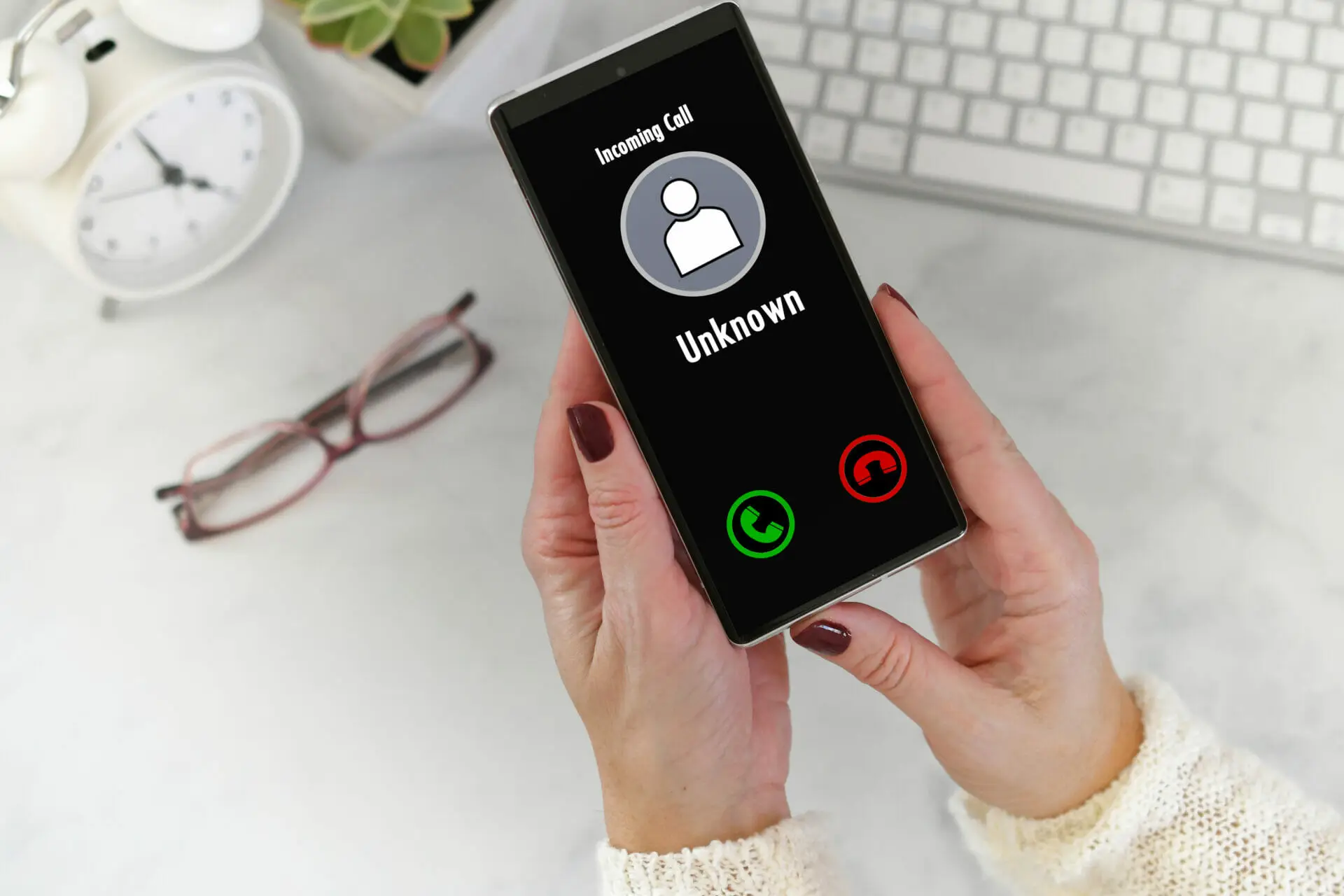FCC Introduces New Rules to Fight Robocall Spoofing
As part of its ongoing effort to combat illegal robocalls, the Federal Communications Commission (FCC) announced on March 16, 2023, it is enhancing and expanding service provider obligations to implement the STIR/SHAKEN caller ID authentication framework. The move builds on the FCC’s implementation of a framework used to trace back, block, and identify originators of illegal spoofed robocalls.
How Spoofing Works
Scammers find phone number spoofing an increasingly popular technique. They know people are wary of answering unwanted calls with unfamiliar or toll-free numbers. As a consequence, they use spoofing to trick the caller ID by displaying a false identity. Scammers use this method to display the same area code as the receiver’s phone number. They may provide a slightly altered version of the receiver’s phone number. In some cases, it even appears that the call comes from their phone! No matter what type of phone number you use, fake callers are a possibility. This includes landlines, cell phones, and VoIP (Voice over Internet Protocol) phones. Stay aware and be cautious.
Scam artists use different technologies and methods to deceive people. This behavior often results in identity theft and loss of funds. It’s important to be aware of this issue and take steps to protect yourself. If you receive a suspicious phone call, don’t answer it. Take the time to research further before responding.
What is STIR/SHAKEN?
STIR/SHAKEN enables service providers to verify calls using digital certificates. STIR stands for Secure Telephone Identity Revisited and SHAKEN stands for Secure Handling of Asserted information using toKENs. A reputable VoIP provider like Carolina Digital Phone takes every preventive measure possible to keep your calls secure.
STIR/SHAKEN targets re-establishing trust in the communications ecosystem while taking a stronger stance against malicious robocalling. Most importantly it protects consumers against fraud and abuse from robocalling. Carolina Digital Phone uses ClearIP from TransNexus to monitor potentially malicious call activity.
About the New Spoofing Rules
The new rules from the FCC require intermediate providers to use STIR/SHAKEN to authenticate all otherwise unauthenticated IP calls received directly from domestic originating providers.
Although STIR/SHAKEN has been widely implemented, the FCC acknowledges that some originating providers are unable to utilize the framework. In some cases, unscrupulous originating providers may deliberately fail to authenticate calls.
The FCC aims to improve caller ID authentication and prevent illegal robocalls by mandating authentication for all IP calls. A recent report from Outseer finds that phone scams cost Americans over $16.6 billion per year.
In addition, the new rules require all providers, regardless of their STIR/SHAKEN implementation status, to take reasonable steps to mitigate illegal robocall traffic. Providers must also submit a certification and mitigation plan to the FCC’s Robocall Mitigation Database, which includes additional information including:
- Their role in the supply chain
- Their STIR/SHAKEN implementation obligations
- Any recent formal law enforcement or regulatory action or investigation into suspected unlawful robocalling
Penalties for Phone Number Spoofing
The FCC also makes it clear that violations of the mandatory blocking rules could result in substantial fines. They use per-call forfeiture calculations to determine such fines. Service providers that submit certifications that do not contain the minimum requirements to be deemed legal (“facially deficient certifications”) may be subject to an expedited removal process from the Robocall Mitigation Database. Repeat offenders of the robocall mitigation face more drastic consequences.
Defend Yourself Against Phone Number Spoofing
According to Powerdmarc, there are several ways to fight someone who tries to spoof your phone number. These tips include being cautious of unsolicited and unwanted calls. Simply not answering unknown phone numbers isn’t always practical. Still, is it a way to keep spoofers from controlling your line. Always be aware of the tone of a suspect call. If there is an urgency to get you to respond quickly, your radar should go up.
Avoid Online Surveys
Another preventive measure is to avoid entering online surveys or contests. Don’t give out personal information like your Social Security number without knowing the purpose behind the request. Remember that no reputable business will call you asking for information such as user ID, password, or personal information. Keeping details about your identity private is a simple step in preventing identity theft. If you have suspicions that a call is not legitimate, you can hang up and call the business (like your bank) directly.
File A Complaint About Scammers
Filing a complaint with the Federal Communications Commission (FCC) Consumer Complaint Center is an important step in ending phone number spoofing. The FCC has authority over all communication transmitted via wire, satellite, and cable in the United States. Thus, filing a complaint in such a manner ensures that perpetrators of this crime can be held liable. Through enforcement of The Truth in Caller ID Act of 2009, large fines up to $10,000 can be levied on anyone who has acted with “intent to defraud, cause harm, or wrongfully obtain anything of value.” So, if you believe your phone number is being spoofed, you must take action as soon as possible to aid the FCC in securing their communication systems.
When you report an issue through the FCC’s complaint submission form, there is no guarantee that your complaint will be resolved quickly. This government agency receives a large number of these requests. Still, an agent will normally acknowledge your request promptly, especially if it is serious.
Notify Local Law Enforcement
In the event of an FCC-related problem, it is recommended to notify local law enforcement and inform your employer if the issue pertains to your work number. It may also be worthwhile to report the matter to your state’s attorney general.
Not all cases of phone number spoofing may indeed be considered illegal under The Truth in Caller ID Act – if no harm or intention for fraud is detected then no legal action will be taken. However, it is still beneficial for victims of this crime to file an official complaint with the FCC regardless – this will alert them about potentially malicious communication and if found guilty, perpetrators can face severe punishments due to their intention to deceive.
Stay Vigilant Against Scammers
It is also important to remember that it is up to you to protect yourself against phone number spoofing. While Carolina Digital Phone does its best to ensure the safety and security of customers, there is no guarantee a malicious actor will not target your line. Thus, people need to remain vigilant in their phone activities and watch out for any suspicious activity.
If you notice any unusual activity on your phone number, such as receiving repeated calls from unrecognized numbers or texts from unknown senders, it is important to take action. To protect yourself against phone number spoofing, consider blocking the caller or contacting your service provider to report the incident. Additionally, it is helpful to keep track of suspicious activity and review your monthly statements for any charges that are not yours. Finally, if you believe your number is being spoofed, filing a complaint with the FCC can help protect others from similar scams.
Keeping Our Customers Safe from Spoofing
Carolina Digital Phone is proud to be one of the earliest and most vocal advocates of the STIR/SHAKEN framework. Since 2021 we use ClearIP from TransNexus to monitor potentially malicious call activity. We are a leader in VoIP services and constantly keeping on top of the latest in call authentication and security, to ensure that our customers are safe and get the best possible service. If you have any questions, please call us at (336) 544-4000.






